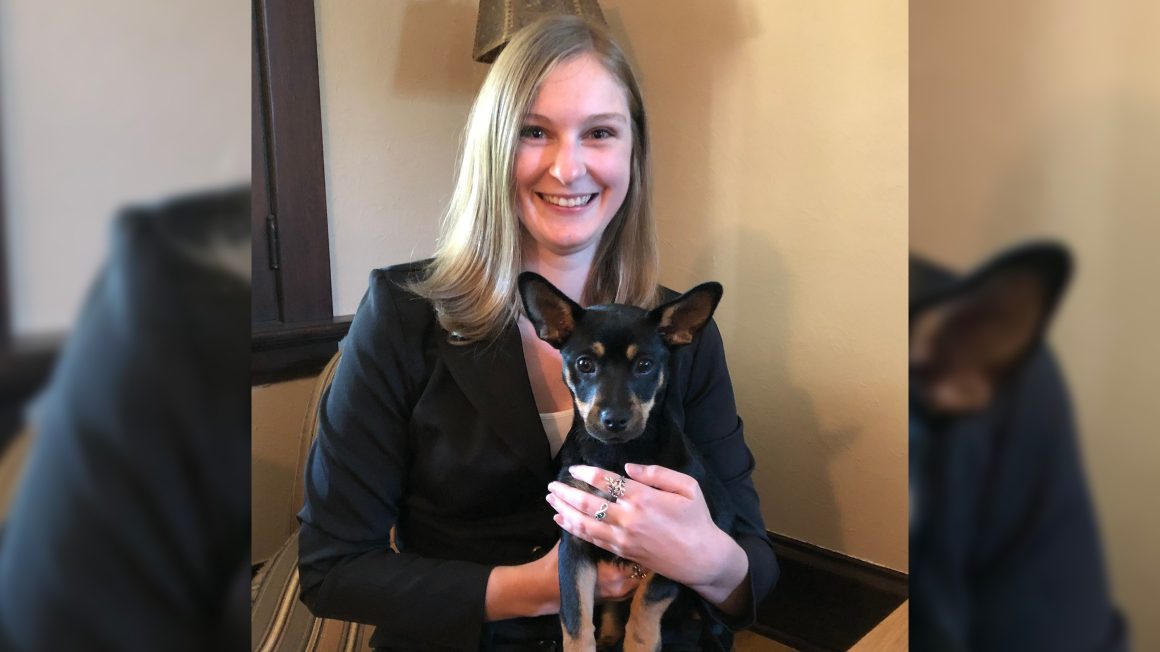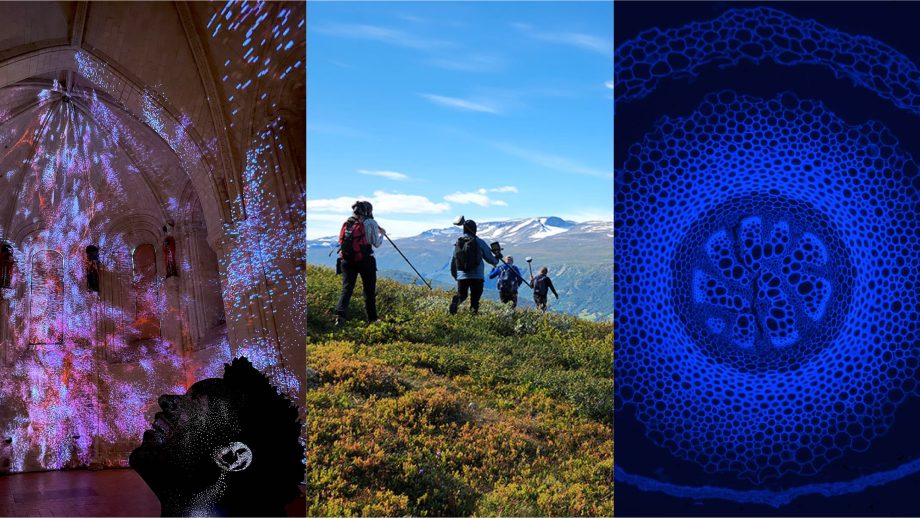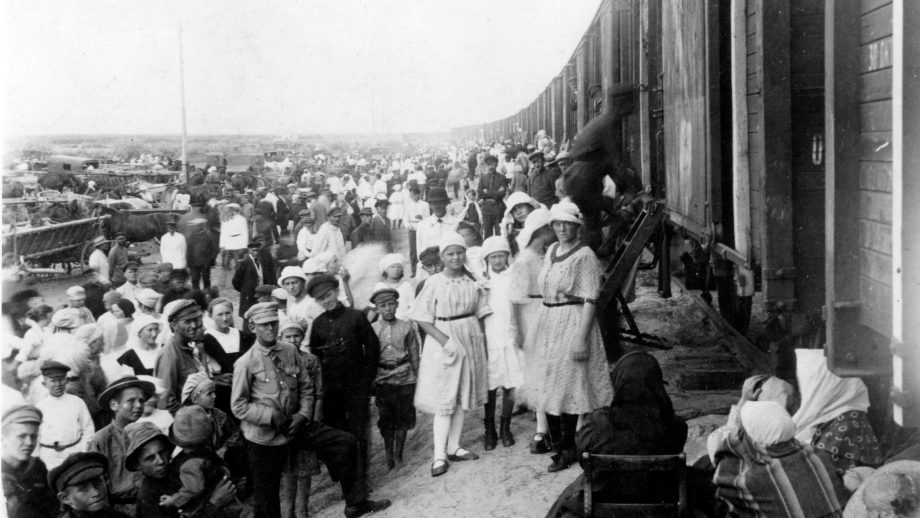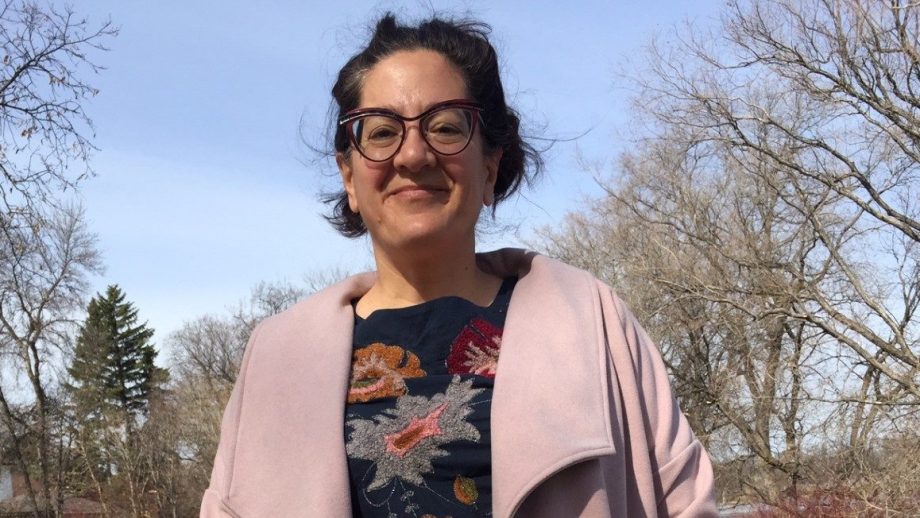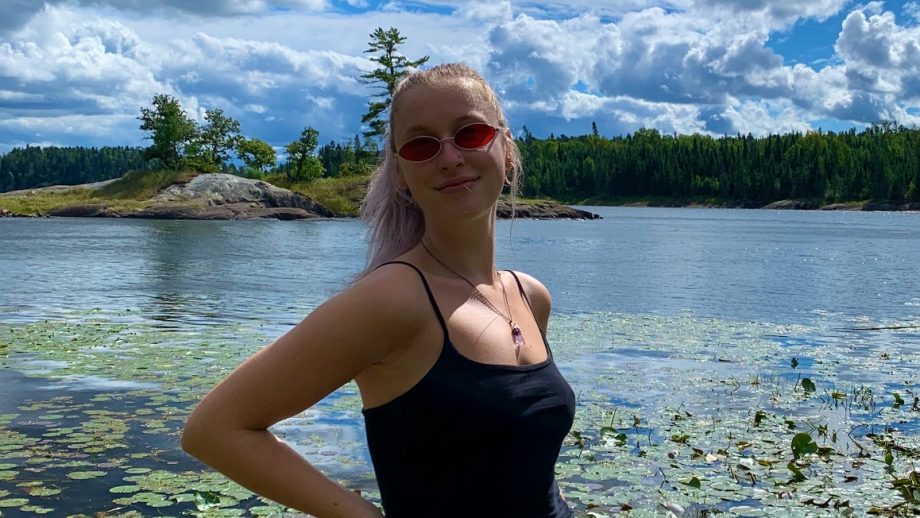Madison Herget-Schmidt’s interest in war history is by no means novel. The subject has long piqued her curiosity and left her searching for more answers. It wasn’t until her first year at The University of Winnipeg, however, that her desire to pursue history as a field of study began to crystallize. She can remember the exact class, too: Massacres and Genocides in World History with professor Dr. Mark Meuwese.
The content, to be sure, was of great interest, but it was as much the approach and consideration given to students which set Herget-Schmidt’s course apart.
“He was really interested in his student success and helping them succeed,” she said. “That drew me in and got me a little bit more confident in studying history, I would say.”
As she progressed through the program, it was a combination of her professors’ personal involvement and interest in her success that began to pave the way to a new destination, the Joint Master of Arts in History.
Initially, graduate studies had not been a consideration, but at the urging of her Department of History faculty – and the prompting of Dr. James Hanley to apply for a Social Sciences and Humanities Research Council (SSHRC) scholarship, which she would later receive – Herget-Schmidt set her sights on the program. And given her clearly defined research subject, it didn’t take her long to find a supervisor, Dr. Delia Gavrus, who could guide her through the program’s thesis-based stream. (The Joint Master of Arts in History also provides course, archival studies, and major research paper streams.)
Perfect partnership
“When I was considering who I would want as a thesis advisor, I was going through the profiles of all of the professors who specialize in the history of science and history of medicine, and her research interests seemed to be very closely aligned with mine,” said Herget-Schmidt, who is researching facial reconstruction in World War I, with an emphasis on the social and emotional impacts of the procedure on soldiers and surgeons.
“When I contacted her, she seemed really interested and excited about the project, so we decided to pursue a partnership.”
For Gavrus, the aligning interests made for an obvious fit, though she’s quick to add that supervision for her has never been solely about working with students whose research is in lockstep with her own.
“My job is to allow the student to research whatever topic it is they’re researching, and I guide them by mentioning literature, mentioning historiography, historical context, or saying, ‘I don’t know much about this, but I know there was a book published in this area,’” she said. “From that point of view, their topics don’t have to align perfectly with mine, because as long as I can provide that support, it is the student’s project, their interest, and that’s what I feel like a supervisor should nurture.”
Of course, shared interests don’t hurt. And as it pertains to Herget-Schmidt, it has allowed her and Gavrus to hit the ground running. The research itself remains in the preliminary stages – travel restrictions have prevented Herget-Schmidt from accessing some integral sources – but the line and ease of communication between student and supervisor has allowed for time to hone her thesis proposal and prepare herself to waste not a moment’s time during her research.
Guiding the journey
In many ways, the graduate student experience has thus far harkened back to Herget-Schmidt’s experience as an undergraduate.
“(Delia’s) always asking about how it’s going and expresses enthusiasm and interest in the project, so that’s very, very nice, just knowing that she’s not only invested in that but in the entire grad school experience,” she said. “She’s given me quite a lot of advice that has helped me succeed in the program. I’d say finding an advisor who is not only interested in your success as a researcher but in your success as a student is invaluable.”
And that is unquestionably Gavrus’ approach, as it is for supervisors throughout UWinnipeg’s History department.
“This is like teaching-plus,” Gavrus said. “There is so much feedback and I get to read different versions. I get to see not just the final paper for a course but I get to read drafts that get better and better, help the student think about publication – it’s wonderful. It is incredibly rewarding, and I see part of that journey that I myself undertook. It’s great.”
Applications for the 2022-23 Master of Arts in History intake will be open in early November 2021.
For more information about the History program, please visit the departmental website or contact Dr. Ryan Eyford at r.eyford@uwinnipeg.ca.

